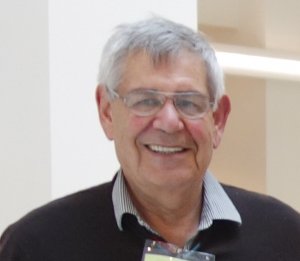
From the Executive Director

At BSF, we have always promoted and encouraged partnerships between promising Israeli scientists and their cohorts in the United States. Since we often provide grants for projects early in their development, we see first-hand how these talented men and women are at the forefront of their science fields, always wanting to discover what is still left unknown, and having bold ideas about the paths they wish to take.
Many of these parings become lasting partnerships, giving these teams the opportunity to work with each other for many years. In this issue of Vision, you will meet scientists who have received several BSF grants over the years. The continued support helps with the on-going collaboration between the scientists, as well as their research teams.
By combining their talents and expertise, these partners are making noticeable strides in their fields. Ehud Ahissar, of the Weizmann Institute in Rehovot, and David Kleinfeld of the University of California San Diego, are currently sharing their fourth BSF grant since 2003. (Even before they teamed up, both had already been awarded BSF grants for separate projects during the 1990s.) They are investigating so-called “brain loops” that act as mediators between the brain’s sensory inputs and motor outputs. Brainstem circuits control many important bodily functions, including breathing, movement, balance, sniffing, chewing and speaking. Ahissar and Kleinfeld are attempting to answer long-held questions about how these circuits work together. Their findings could have a profound impact on our understanding of the nervous system.
You will also meet Noah Isakov of Ben Gurion University, and Amnon Altman of the La Jolla Institute for Allergy and Immunology. They received their first BSF grant nearly 30 years ago, and they’ve been working together ever since. Their focus is on lymphocytes, which are specific cells in the immune system that act to keep illnesses at bay. However, for reasons that are still not fully understand, regulation of immune responses can be derailed, leading to serious diseases. Isakov and Altman have already discovered two distinct molecules that can apparently affect the nature and intensity of immune response. Now, they’re hoping to learn more about how these molecules interact. Their findings could play a key role in future development of tools and treatments that would prevent – or at least lessen the severity – of immune system breakdowns.
These are just two of many Israel-U.S. partners who have benefited from multiple BSF grants. It’s worth noting that even when these scientists re-apply to BSF, they still go through a rigorous process where their progress is reviewed in detail by fellow scientists in their field, as well as by our staff.
In this issue you will also meet one of the newest members of our Board of Governors, Dr. Peter Hotez. He is an internationally-recognized physician-scientist working on vaccine development, particularly for neglected tropical diseases. I am confident that BSF will benefit enormously from his knowledge, experience and dedication.
Many BSF-funded projects have the potential to transform our world. The scientists profiled here are well on their way to doing just that. Their endeavors stand as testaments to what can be achieved when the best and brightest from Israel and the United States work together on projects that enhance our lives and our universe. At BSF, we are enormously proud to assist them on their paths toward potentially profound discoveries.
Sincerely,
Yair Rotstein
Executive Director
